It’s always a tricky thing for a white guy in South Africa to offer a critique of the views of a black guy on the subject of black economic empowerment, especially when the white guy is a two-bit journalist and the black guy is the CEO of Africa’s largest bank by assets.
“Tricky” actually doesn’t come close to describing it – “insane” perhaps, or “ill-advised”. But I feel compelled to offer a respectful rejoinder to Standard Bank CEO Sim Tshalabala’s article in guarded support of BEE in this publication. By all means, judge me, as I know you will.
The reason I’m running the gauntlet of association with apartheid apologists and that crew – people I honestly despise – is because I think Tshabalala falls into a trap that is extremely common among South African businesspeople in general, not to mention the population as a whole, both black and white, and this problem goes way, way, way beyond BEE.
Tshabalala argues that because South Africa remains profoundly unequal, and race remains a large driver of inequality, BEE remains “absolutely necessary to make the South African economy more competitive and more sustainable”. But we shouldn’t be blind to its shortcomings, he says, and he has no hesitation in condemning the corrupt appointment of contractors under the cover of BEE, whose incompetence means that millions of South Africans regularly go without essential municipal services.
“A much greater emphasis should be placed on purging BEE of corruption” – but we need the patience to work through the complexities and understand the issue in detail, given how important it is to frame South Africa’s future, he writes.
Fine. People can disagree, agreeably or otherwise, about these issues, as we do. But my problem comes down to a single sentence in Tshabalala’s piece, and it is this: “But, as someone committed to the long-term preservation of the market capitalist system, I recognise that markets, if left unregulated, tend to exacerbate existing inequalities of opportunity and outcome.”
In my experience, the view that unregulated markets exacerbate existing inequalities is extremely prevalent in South Africa. It’s weirdly prevalent among South African businesspeople – the people you might expect to embrace the power of the markets – but it’s unrelentingly dominant in politics, academia and among the elite in general. Wall-to-wall. I can count on one hand the politicians, academics and journalists I know who would even vaguely question the notion. But in my personal and humble view, it’s a fabulously, fabulously misunderstood idea.
And it’s fundamentally misconstrued for profoundly political reasons, partly, oddly, because it does contain some grains of truth. And this misunderstanding is fundamental not only to BEE’s disconcerting mixed record in South Africa, but also to South Africa’s own post-apartheid mixed record as a whole.
Wild horses
Explaining all of this is complicated, so hold onto your socks.
The argument in favour of Tshabalala’s notion runs as follows: we don’t start off with a blank sheet. Markets allocate resources according to initial conditions: wealth, education, networks and geography. Those who start ahead tend to stay ahead because they can invest more in skills, assets and risk-taking. In South Africa, whites used their political power during apartheid to get ahead. This is more than obvious, but what is the proper response?
Without regulation (by which proponents actually mean activist intervention), this becomes self-reinforcing. Market outcomes follow existing endowments, and the happy idea that we all set off at the start line of life at the same point is mythical and, in South Africa’s case, ridiculously wrong. And it’s not just that existing wealth compounds, it’s that the lack of wealth detracts.
Sounds logical.
In a more academic sense, you can put it this way: capital accumulates faster than labour income. This is the fundamental idea of economist Thomas Piketty, who expresses it in his wonderfully simple equation, r > g, which proposes that returns to capital outstrip economic growth. This means wealth naturally concentrates unless something disrupts the compounding advantage, like taxation, competition policy, inheritance tax or broader asset ownership.
Proponents of Tshabalala’s notion tend to believe unregulated markets are like wild horses; beautiful … but, sadly, unruly. They toss their riders off and just generally create havoc. They are crazy and disordered. Or to put it in economic terms, they produce those famous things known as “externalities”, like pollution, unsafe products, predatory lending and monopolies.
And all of these things disproportionately harm low-income households. Education, infrastructure, security, clean water and the rule of law cannot be efficiently provided by unregulated markets. Without them, opportunity becomes more unequal. Markets need a capable state to ensure the platform on which competition can work, the argument goes.
Well, that’s pretty much a mouthful. Try arguing against that, if you can.
But the thing is: you can – and should.
Give and take
The key is really simple: market transactions occur only because both parties expect to benefit. If there is no perception of benefit, there is no transaction. What this very obvious point illustrates is that there is no coercion here. There may be inequality of outcomes, but both sides accept that possibility as long as the process is fair.
This is precisely contrary to the notion that markets are somehow designed to be extractive to one side or the other, and hence need to be curbed and corralled, like our wild horse. Actually, history demonstrates precisely the opposite. It’s not having markets that creates externalities. It’s not markets, but market power that creates these externalities, and that much is obvious from even the most cursory glance at global history over the past few centuries.
And how does market power happen? It happens for lots of reasons, but I’m afraid to say one of them (if we’re being honest here) is government intervention. Apartheid happened not because of market power; it happened because of politics.
It died (among other things) because of markets. Of course, there is also corporate collusion, geopolitical collusion and all kinds of other stuff that occasionally becomes a problem. And that often happens because of … you guessed it … government intervention. The idea that a particular form of government intervention called BEE will make the economy more competitive is convoluted at best; it’s precisely designed to make the country less competitive by restricting free transactions. It is doing so, by definition, on the basis that this is the price we must pay for a fairer society.
Regulated markets are, above all, responsible for creating externalities, as we can see in areas of our own society that are highly regulated, most notably in Eskom and Transnet. It’s no surprise they are such poster children for South Africa’s dysfunction; it’s an inevitability. And the opposite is also true: the freer the business sector, the more wealth is created and, as it happens, the more transformation has actually taken place. Banking is a good example!
I’m afraid I’m going to throw a Milton Friedman quote in here, just because he says this all so succinctly and well. In his 1980 PBS television series, Free to Choose, he said: “A society that puts equality before freedom will get neither. A society that puts freedom before equality will get a high degree of both.”
But what about Piketty’s scientific demonstration of his r > g theory? I have to say, I do suspect Piketty is fundamentally right in his own formulation of the issue. Factually, in the places Piketty cares about (France), the return on capital has exceeded economic growth in much of recent history – but not always (and particularly if you don’t include property in “r”, as he does). In the post-war decades (1945-1973), the opposite was true. And during crises (2008, 2020), capital returns collapse, but wage incomes often remain stable due to policy support. But crucially, in developing countries with market systems, it inverts.
You can see the effect of this in the huge wealth accumulation in some first-world countries, reflected in the astoundingly expensive and luxurious houses of people who had the money to invest in ballooning stock markets around the world. I always wonder, what do you do in a house with 13 toilets anyway?
The ‘elephant curve’
But what Piketty and his many instinctive proponents around the world miss is not the relationship but the absolute. Do we care more about equality (the relationship) than poverty (the absolute)? Personally, I care much less about how many rich people there are and their terrible taste in homes, as long as poverty declines.
And factually, that is how it happens. Markets are not static systems; they are dynamic arenas for mobility. John D Rockefeller, Oprah Winfrey and Koos Bekker have one thing in common: they did not begin life wealthy. Of course, many rich people did, but wealth doesn’t guarantee better decision-making or risk-taking either. Name-check Vanderbilt, Astor, Baring, Lehman and so on.
The argument that markets are a conveyor belt simply reproducing initial inequalities is transparently not the whole story; markets are fluid and create constant churn because new industries emerge, old ones die, new talent outcompetes incumbents and innovation allows outsiders to leapfrog insiders.
I could go on and on: capital markets tend to fund opportunity, not pedigree. And that’s why in this period of high growth and declining poverty, the world has become more equal, not less. It sounds like heresy to say that, but in a sentence, what’s happened over the past 50 years is that the Chinese “peasantry” have become factory workers by the gazillion.
That means enormous numbers of people who lived in decile 10 have moved into decile six, as they have all over the world. If that’s too colloquial a description, the data provided in something called the “elephant curve”, which originates from Branko Milanović and Christoph Lakner’s global income distribution analysis, shows this trend.
Over the past 50 years, the share of humans living in extreme poverty has plunged from about 60% to under 10%. More people escaped poverty in this period than in all previous centuries combined. Globalisation, industrialisation in Asia, technological diffusion, and improvements in health and education drove this transformation.
Did the proportion of people in the top 10% or top 1% increase? Undoubtedly. But the point is that all of that happened because more countries embraced market systems, particularly in Asia (especially in China) and now in India.
So, for South African academia, the political elite, the media and businesspeople who cling to the notion of a manufactured, interventionist, government-led solution to fixing the country’s awful, racist past by putting inequality above poverty, they might give much more careful consideration to the glib notion that the amorphous markets can’t fix the problem. Proponents of BEE want to fix apartheid’s distortions by applying more racial discrimination, just in the opposite direction. And like apartheid, as it happens, what they have created is huge externalities in opening the door to gaming the system.
That is not a problem that can be solved by better policing, as Tshabalala suggests; it’s integral to the process of market intervention. Tshabalala cites African Rainbow Minerals (ARM) and Seriti as examples of success. But the market cap of the two combined is under R40bn. State capture cost South Africa, according to our own president, 10 times that. Of course, ARM and Seriti are not the only success stories, but neither is the problem of entities-gaming fully quantified, as the Madlanga commission is now uncovering.
In a broader sense, it is obvious and demonstrable that inequality is not the mechanical outcome of capitalism – checkmark Sweden and Switzerland – but neither is it an accident. It is the product of interaction between structural forces and institutional choices. When growth is high, education is broad, competition is strong and policy intervention is innovative (rather than heavy-handed), labour can flourish and social mobility expands. When growth slows, when capital becomes scarce relative to labour, or when institutions weaken, the compounding advantage of wealth reasserts itself.
I know, I know. Inequality can become harmful when it reaches levels that distort institutions, choke off opportunity or allow inherited wealth to dominate meritocratic competition. Some argue it has reached this point in some places.
But, ultimately, we are not absolutely required to choose between addressing inequality and poverty – but to the extent we are, we should prioritise addressing poverty. We certainly should not be intensifying racial discrimination, as a small mountain of legislation introduced by the ANC has in the recent past. Overall, if it comes to a choice between BEE and improvements in poverty, knowledge and innovation, BEE should give way, and we should design systems with that in mind. They are not the ones we have now.
Top image: Two faces or a candlestick; ways of seeing BEE. Picture: Rawpixel/Currency collage.
Sign up to Currency’s weekly newsletters to receive your own bulletin of weekday news and weekend treats. Register here.


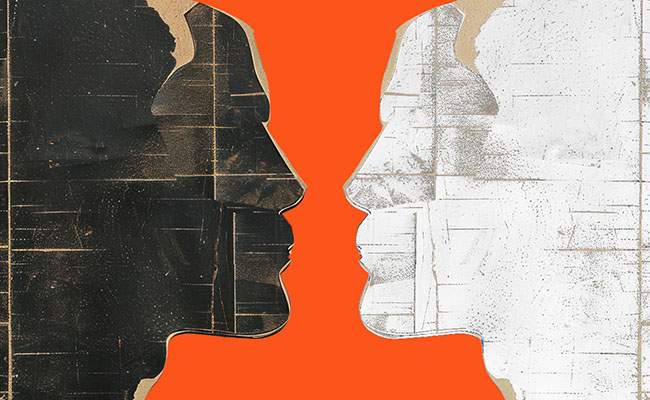
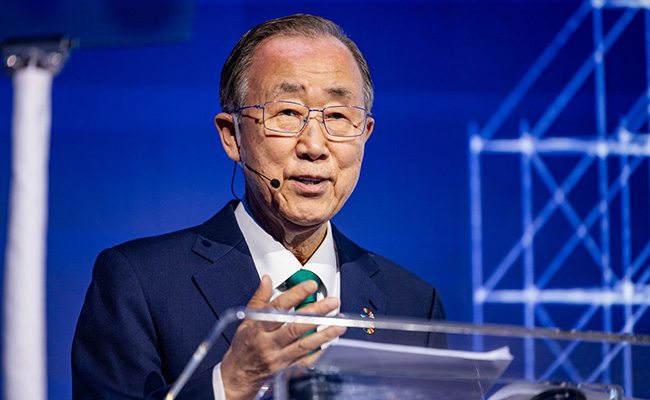
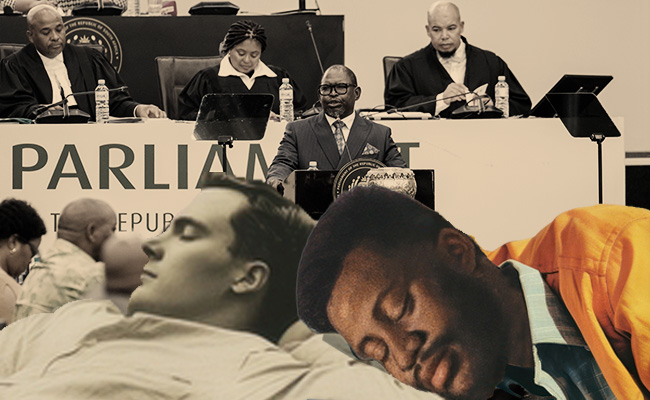
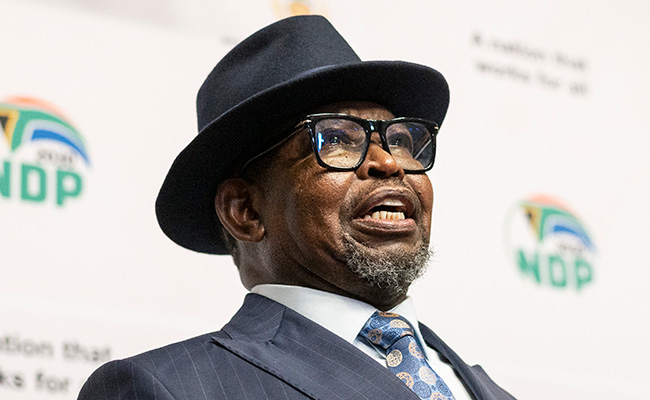

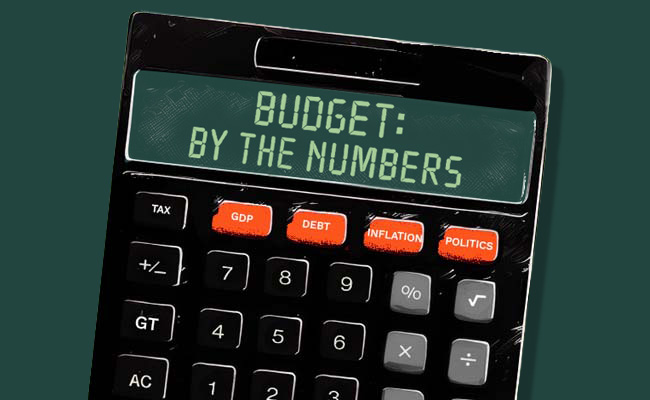



Good Morning Vietnam!
Via the World Economic Forum:
The effect of free markets in Vietnam:
1993 – 58% of people in poverty.
2016 – 10% of people in poverty.